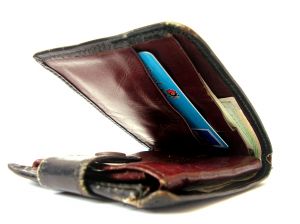How emotion dictates how we pay down debt
So much about debt is emotion.
 After all, 99 times out of 100 it’s our own doing we’ve spent beyond our means, emotion being the catalyst that dictated our mood when we bought that jacket, signed up for that smartphone or agreed to take that loan.
After all, 99 times out of 100 it’s our own doing we’ve spent beyond our means, emotion being the catalyst that dictated our mood when we bought that jacket, signed up for that smartphone or agreed to take that loan.
Then, why shouldn’t paying down debt be about emotion, too?
By a recent study from marketing professors and behavioural economists, the way we pay back our loans is intrinsically tied to how it makes us feel. Though perhaps we do so in a way that’s not always to our benefit.
According to the survey, headed by Israeli marketing prof Mota Amar and Duke University’s Dan Ariely, author of the books Predictably Irrational and The Upside of Irrationality, we often throw out logic altogether when paying down debt.
*Bing: What debt should you pay off first?
So, let’s say you’ve got three debt streams: a credit card, a line of credit and car payments.
Instead of first tackling the most pressing debt, often the one with the highest interest rate, the above study found people are most likely to pay down the debt they’re closest to eliminating. That is to say, if you’ve got $10,000 in credit card debt at 20 per cent interest but $2,000 in car payments at 4.9 per cent interest, consumers more often than not would move to pay down their cars first – interest penalties be damned – in order to narrow their debt obligations from three sources to two.
“When it comes to paying off debt, 90 per cent of people pay off on emotion,” Chad Gentry, a Colorado-based credit counsellor, says. “There are so many emotions to (paying off) that small balance, and it is those emotions that ultimately drive decisions.”
While it doesn’t take a seasoned financial advisor to note paying down the highest-interest debt first is the smart play, in fact there is a small faction that disagrees, suggesting there’s real value to eliminating a debt stream, even though it may carry a smaller interest penalty.
Author Dave Ramsey explains on his website that if paying down debt is an emotional experience, we need the small victory of closing down a debt source to stay motivated. You may lose some cash in the form of interest by doing so, but reducing your number of debt streams shouldn’t be ignored.
“You need some quick wins in order to stay pumped up about getting out of debt,” Ramsay says. “Paying off debt is not always about math. It’s about motivation.”
How do you pay off debt? Do you always go for the highest-interest payment, or move toward eliminating a debt stream altogether, even if it carries a smaller interest penalty?
By Jason Buckland, MSN Money




Posted by: Al-Man | Apr 27, 2021 10:18:47 AM
I pay highest amount with largest interest payment first. As I pay it off, the amount I would be paying in interest is either thrown against the same payment or that amount is thrown against another debt to bring it down.
Usually I pay the same amount against a specific debt, even if the payments become smaller. That way more is paid against the principle instead of going to interest.
Paying off any debts I might have is about math because my motivation is not ending up in the poor house.
Posted by: More info | Apr 29, 2021 4:40:07 PM
Thaks to FB credits generator. it is very common that hous pictures belongs to this..
Posted by: CashAdvancesUS | May 8, 2021 4:27:52 AM
I think that it worth to pay more attention to high interest rate debts.I think that at first I need to pay off debts that are urgent.Actually, I think that all the debts are very important to pay in time, that's why I try to do everything in time.My mortgage is a number one in my paying off debts plan.I agree that money and paying off debts need counting,there's no place for excess emotions.Do not make more debts than you can pay off, so I try to avoid making small debts, because all the small debts together make one big debt that it will be difficult for me to pay off.Of course the motivation is important, being debt-free has a lot of wonderful advantages,and motivate me to pay off my debts as soon as I can.